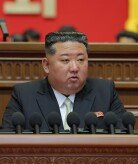Sovereignty Dispute Over Senkaku/ Diaoyu islands Revisited
Sovereignty Dispute Over Senkaku/ Diaoyu islands Revisited
Posted July. 31, 2003 21:42,
China, Taiwan and Japan once again sparred over the sovereignty claims of the Diaoyu Islands (Senkaku Islands in Japanese), which are located between Taiwan and Okinawa, Japan.
Taiwan`s Administration Department announced on June 30 that Taiwan would pursue joint natural resources development and a common fishery zone with Japan in the northern sea areas of the Diaoyu Islands. But there was immediate backlash from China who claimed that such an agreement was null and void. The islands, which can be looked upon as the China-Japan version of the Dokdo Island controversy, are virtually all occupied by Japan. Yet there is a great deal of controversy over the islands, as both China and Taiwan also claim sovereignty over them.
Leaving disputes over the sovereignty claims behind, Taiwan and Japan agreed to develop resources at the 200 mile territorial sea area, north of Diaoyu, where the two countries` territorial waters collide, said Rinjareung, spokesman of the Taiwanese Administration Department. From now on, ships from both countries can carry out fishery activities safely in this sea area.
Responding to this later, the Chinese Ministry of Foreign Affairs declared the agreement between Taiwan and Japan void as The Diaoyu Islands have long been China`s territory, and Taiwan is even not an authorized country.
Prior to such disputes, China also upset Japan by allowing individuals to buy the rights to use uninhabited islands in the country, including Diaoyu.
Taiwan has been taking the strongest stance over the sovereign right over Diaoyu. When some of Japan`s right-wing supporters installed a lighthouse on Diaoyu in 1996, the Taiwanese government said it would review military response, while the Chinese government proposed Japan jointly develop the islands.
Taiwan`s Defense Ministry rebuked Japan as it signed a lease on three civilian owned islands, saying If war is unavoidable, we will stand up to defend our nation.
Taiwan`s change of its stiff stance is believed to have come from its realization that it is hard to ignore the fact that Japan governs the islands in reality, and obtaining guarantees to conduct fishery activities safely in the area would be more profitable.
In addition, its intention could be analyzed as efforts to strengthen its diplomatic stance with neighbors, considering the straits relations.
Yoo-Sung Hwang yshwang@donga.com






![한그릇 1만5000원 봄동비빔밥 ‘품절’…제2의 두쫀쿠?[요즘소비]](https://dimg.donga.com/c/138/175/90/1/wps/NEWS/IMAGE/2026/02/27/133437451.3.jpg)
